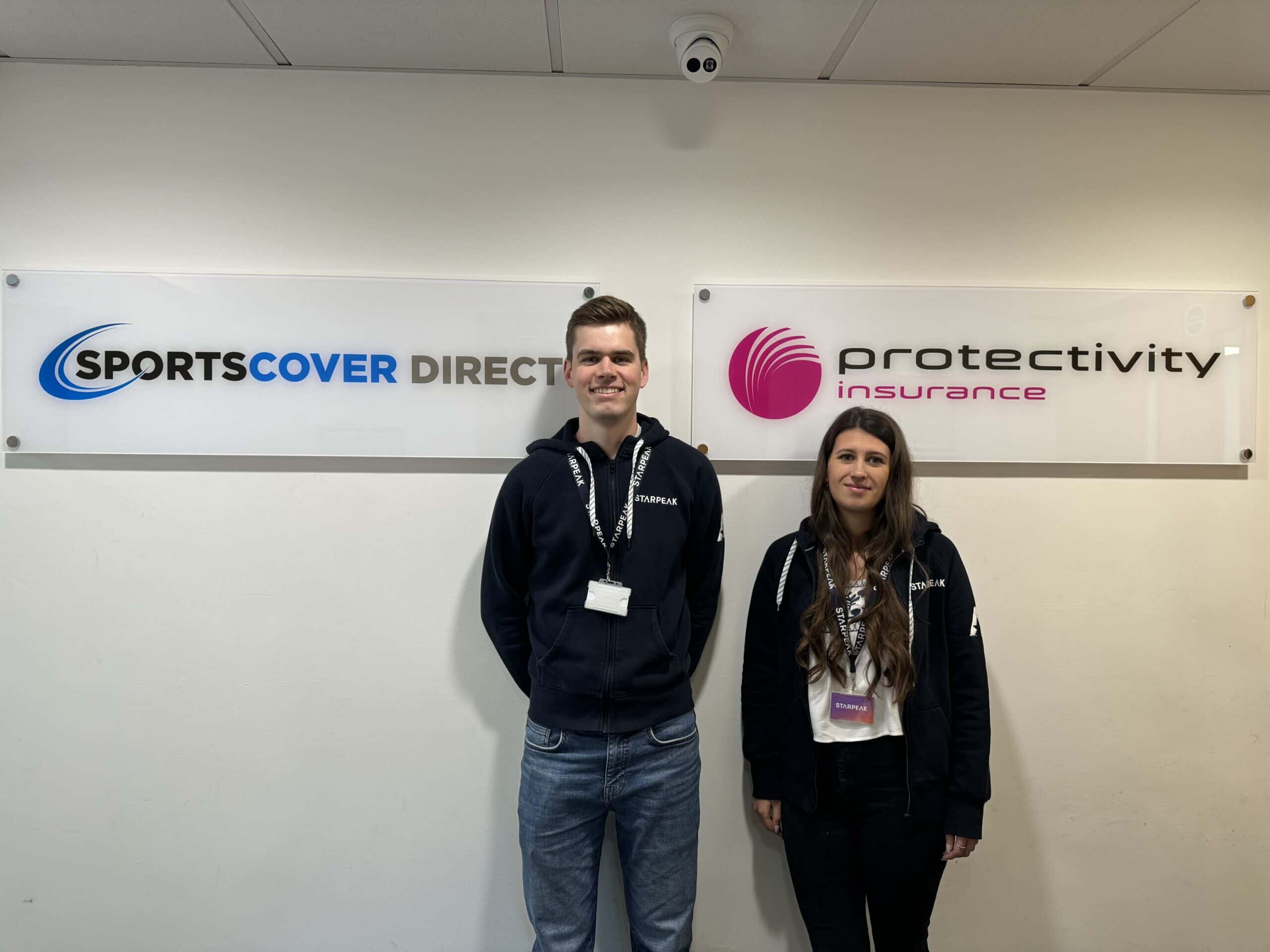Graduating university can be a daunting time and it isn’t uncommon for fresh graduates to find it difficult navigating the transition from student to working life. While some may have a clear plan in place, many are likely to be feeling a little lost – unsure of what to do next and what industry opportunities are available to them.
In the insurance sector, demand for employees is growing. However, the long-standing preconception that the industry isn’t an ‘attractive’ place to work may be deterring young, ambitious talent from pursuing careers in the field. Now that Gen Z is entering the workforce, it’s crucial that we rewrite this narrative.
As final year undergraduate students across the UK enter their last few days of their semesters this week, we caught up with our very own Junior Marketing Executive Tegan Pounds and Research Graduate Isaac Peatfield, to reflect on their first year working in the insurance industry and offer advice to this year’s cohort of graduates.
How does your role at Starpeak compare to where you were this time last year?
Tegan: This time last year I was just finishing my Business and Management degree at Oxford Brookes University. My degree was quite broad and covered everything from accounting to HR, but the area I really enjoyed was marketing. After I graduated, I was keen to get a job centered around this, so when I saw the Junior Marketing Executive role at Starpeak I was intrigued. Insurance wasn’t an industry I’d ever considered before, but the job description sounded like a great fit, and I’ve really enjoyed it so far!
My role varies week to week, but key responsibilities include monitoring and posting on social platforms, making changes to the website, planning and reviewing brand advertising and awareness projects and more. I also support product development and rate analysis, internal comms and monitoring third party organisation partnerships. It’s been great to see how much experience I’ve gained in such a short space of time.
Isaac: I went to university in Loughborough and studied Mechanical Engineering, so just like Tegan I didn’t have any previous experience in insurance, but it’s so much more interesting than I initially thought! My degree was very technology focused and Starpeak was looking for a Research Graduate to help the business stay on top of how the latest digital innovations can improve customer experience.
Since joining Starpeak there has been a large focus on using AI to improve our products and services, which I’ve enjoyed contributing to. I also help analyse company data to highlight areas where business efficiency could be improved, which has helped me gain a broad understanding of how the company operates.
How has your view of the insurance industry changed?
Tegan: Like many graduates, I was guilty of having preconceptions that the industry was serious and somewhat monotonous, but it’s not like that at Starpeak. Working at Starpeak instead feels like being part of a collaborative community. We all have a shared sense of pride for the company and our close-knit team means that everyone’s contributions are valued, and you can directly see the results of your work. We also have flexible working arrangements which help maintain a great work-life balance. It just goes to show that not every insurance job falls under that corporate stereotype!
What advice would you give to fresh graduates considering their next steps?
Isaac: Finishing university can feel as though there’s so much pressure on you to secure a job and, with some larger corporation’s grad schemes receiving thousands of applicants, it’s easy to become disheartened. Don’t automatically write off a career in a certain sector or a smaller organisation just because you think it might be boring! There’s a lot more to most SMEs than meets the eye and you’d be surprised by the range of opportunities available.
If sourcing young talent is a familiar challenge for your business, it might be time to transform the way you market your company to this demographic. Insurance firms that provide development roadmaps and training opportunities, alongside a positive workplace culture, are more likely to attract young applicants.
As a sector, we need to work together to close the current talent gap and nurture a new resilient workforce to help our industry grow.

